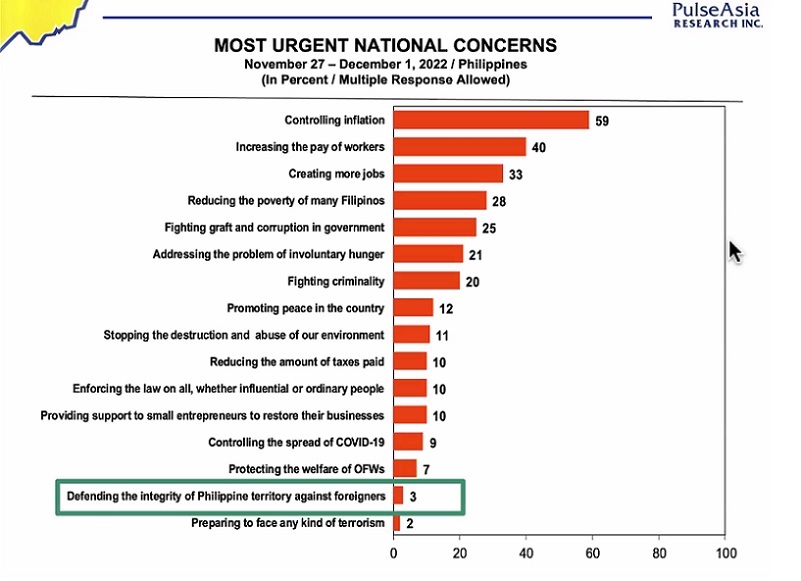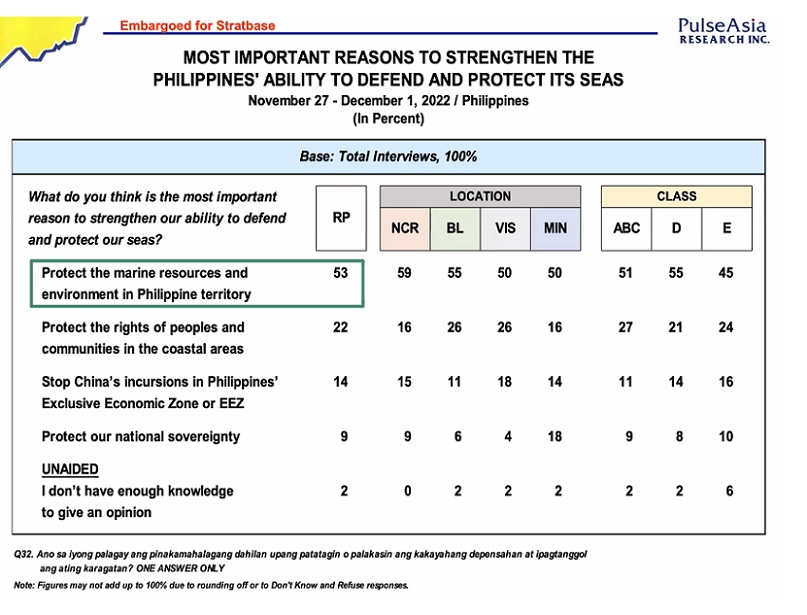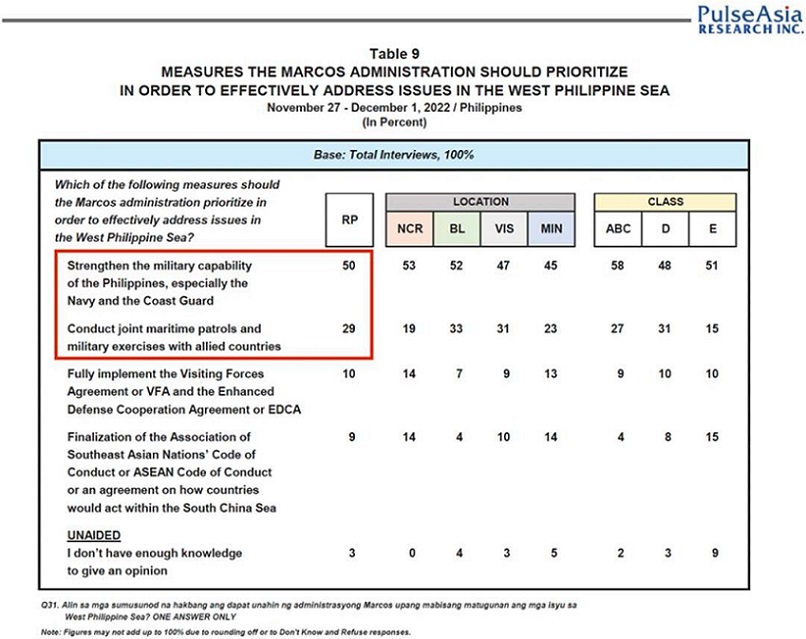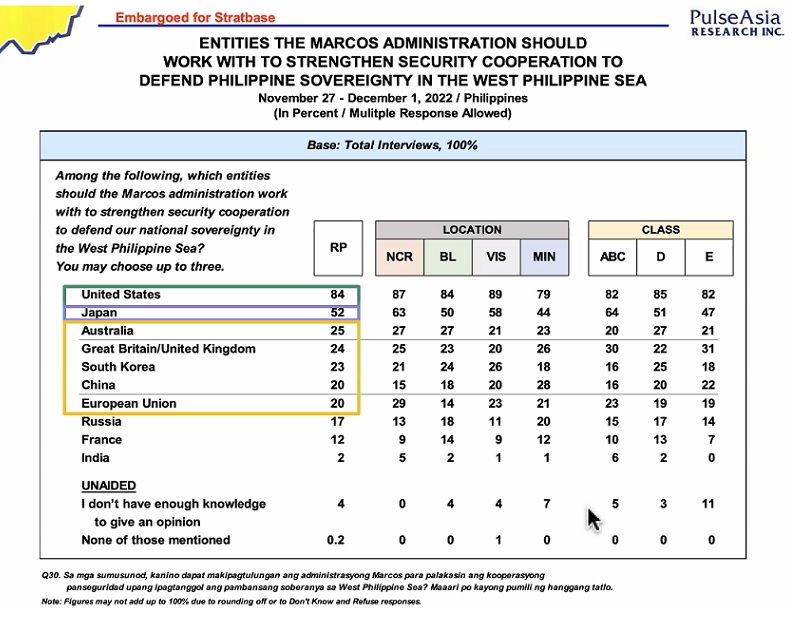As leader of the nation, President Ferdinand Marcos Jr. must place the defense of Philippine territory against foreign intrusion at the forefront of his administration to make it a top national concern by the public who are more worried about high prices, low wages, and unemployment.
Political analyst Renato de Castro made the call at a forum held by Stratbase ADR Institute and the United States Embassy on Thursday, pointing out that “the people take the cue from the government.”
This was echoed by Pulse Asia President Ronald Holmes who presented the results of the poll firm’s recent survey showing that only 3% of Filipinos consider protecting the country’s territory as top priority. The issue was ranked 15th of 16 most urgent national concerns of the 1,200 respondents all over the country in the survey on pursuing national interest in foreign policy conducted on November 27-December 1, 2022.

“Essentially, it can only be taken as a priority by the public or urgent by the public depending on the statement or the emphasis given by the main policy player. This has to be the president,” Holmes said.
According to the survey sponsored by Stratbase, basic livelihood issues such controlling inflation, increasing the salary of workers, and creating more jobs are the most urgent national concerns of most Filipinos.
“For many Filipinos, however, the link between territorial integrity and their material welfare may not be as apparent as indicated by their assessment of the importance or urgency of addressing the country’s territorial integrity,” Holmes, a political science professor at De La Salle University, said.
Only the government, the president in particular, can change this view of the majority of Filipinos, he added.

He said that that way to make the public realize the importance of defending the country’s territory in WPS is to link it with basic issues that Filipinos consider important to them.
“This is livelihood and income because you know one of the things that has been mentioned in past fora is that, you know, the area also has so much of resources that the Philippines could benefit from,” Holmes pointed out. “And if we lose those territories, the Philippines, for example in terms of gas…will be at the losing end.”
Both De Castro and Holmes stressed that the public “get their signal” from the government on what should be the country’s priorities. For former president Rodrigo Duterte, for example, fighting criminality and the drug war were top concerns while his predecessor, the late president Benigno Aquino, put emphasis on fighting graft and corruption during his term.
Holmes said, “If you look at the opinion surveys, some of the concerns that may not be viewed as urgent suddenly become urgent depending on how the president or the chief executive signals the importance or the urgency of these concerns.”
He recalled that when the late President Benigno Aquino III took up the issue and brought it to the arbitral tribunal, that made it very clear that the West Philippine Sea was an important national issue.

Defense cooperation with the U.S., other ally nations
But the importance of the country’s overlapping claims with China in the WPS is not totally lost on Filipinos. Citing the same survey, Holmes noted that 84% of Filipinos believe that the government should work with the U.S. to strengthen security cooperation in defending the country’s sovereignty in the contested area.

About the same number think that to effectively address the festering territorial and maritime dispute with China, the Marcos administration should prioritize strengthening the country’s military capability (especially the Navy and the Coast Guard), conduct joint maritime patrols and military exercises with allied countries such as Japan, Australia, Great Britain/United Kingdom, and South Korea.
About 53% of Filipinos also believe that protecting the country’s marine resources and environment is the most important reason to strengthen its capability to defend and protect Philippine seas, according to the poll.
Marcos is on a state visit to China from Jan. 3 to 5. In a press release on Thursday, Malacañang announced that Marcos and Chinese President Xi Jinping have agreed to establish a “direct communication mechanism” to prevent miscommunication in the WPS. This would be handled by the Maritime and Ocean Affairs Office of the Department of Foreign Affairs and the Department of Boundary and Ocean Affairs of China’s Ministry of Foreign Affairs.